Asked by: Tom Russell, Birmingham
Hunger is a complex sensation that is only indirectly linked to the need for food. Humans are opportunistic omnivores that have evolved to take advantage of sustenance whenever it is present. The sight or smell of food can trigger hunger, and so can even just imagining it. Your body also needs time to prepare for digestion and many of the related hormone changes are driven by your body clock. So you’ll feel hungry at lunchtime, whether you need to eat or not.
1. Vagus nerve
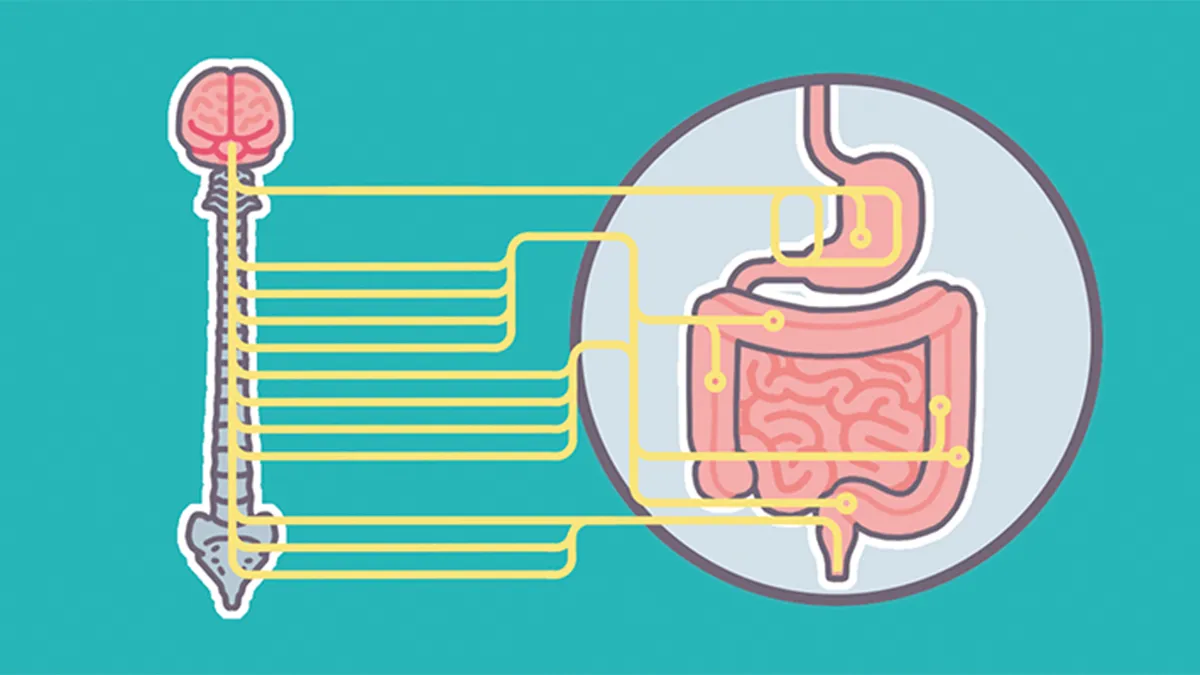
This sends signals to the brain about how full or empty your stomach is, as well as the different nutrients present in the intestines.
2. Stomach
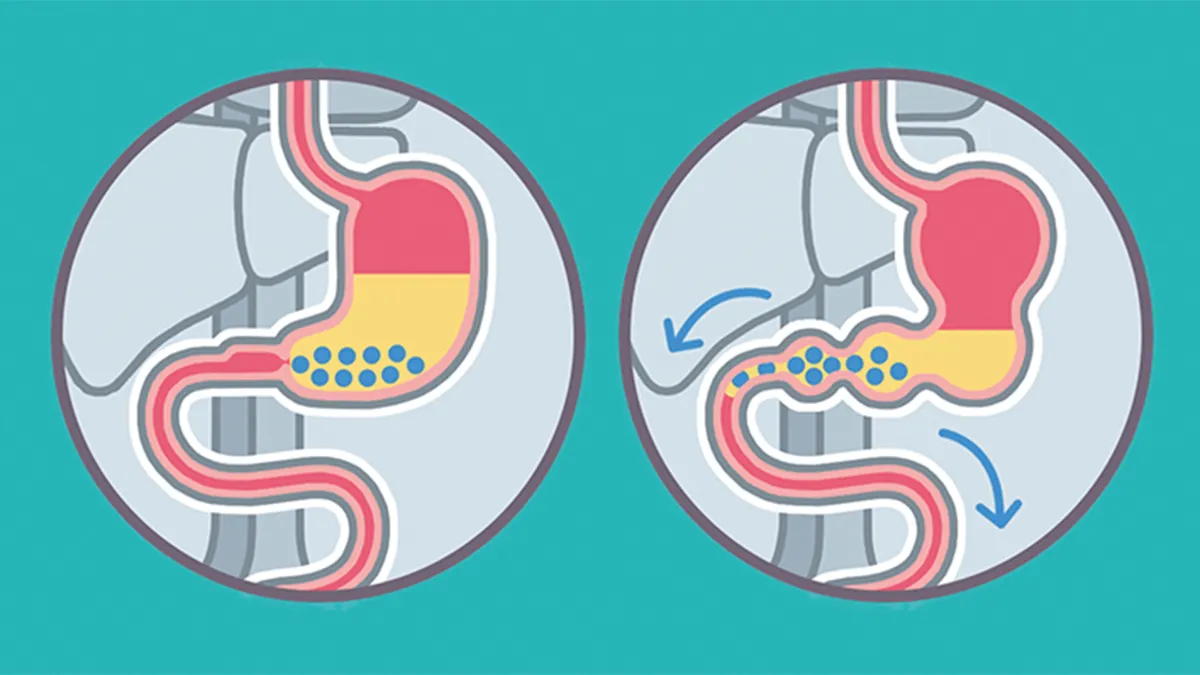
When your stomach has been empty for two hours, it begins contracting to sweep remaining food into the intestines. This rumbling is called ‘borborygmus’.
3. Gastrointestinal tract
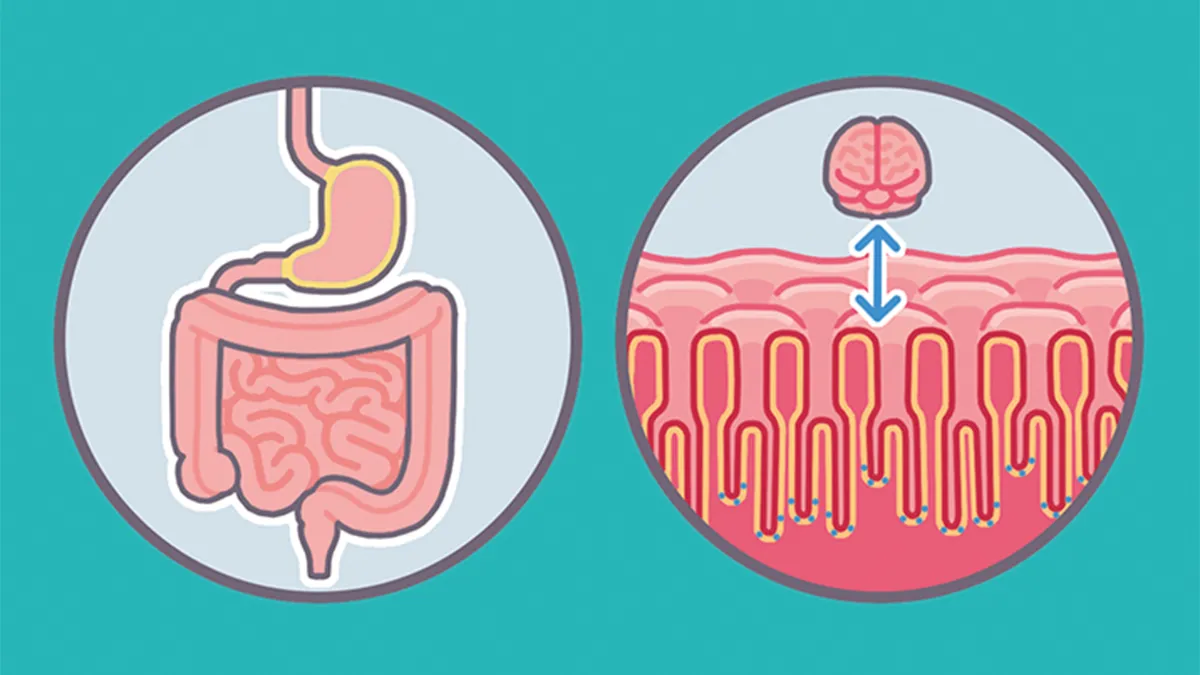
Cells in the stomach and intestine produce ghrelin, a hormone that triggers feelings of hunger. Higher ghrelin levels are associated with obesity.
4. Pancreas
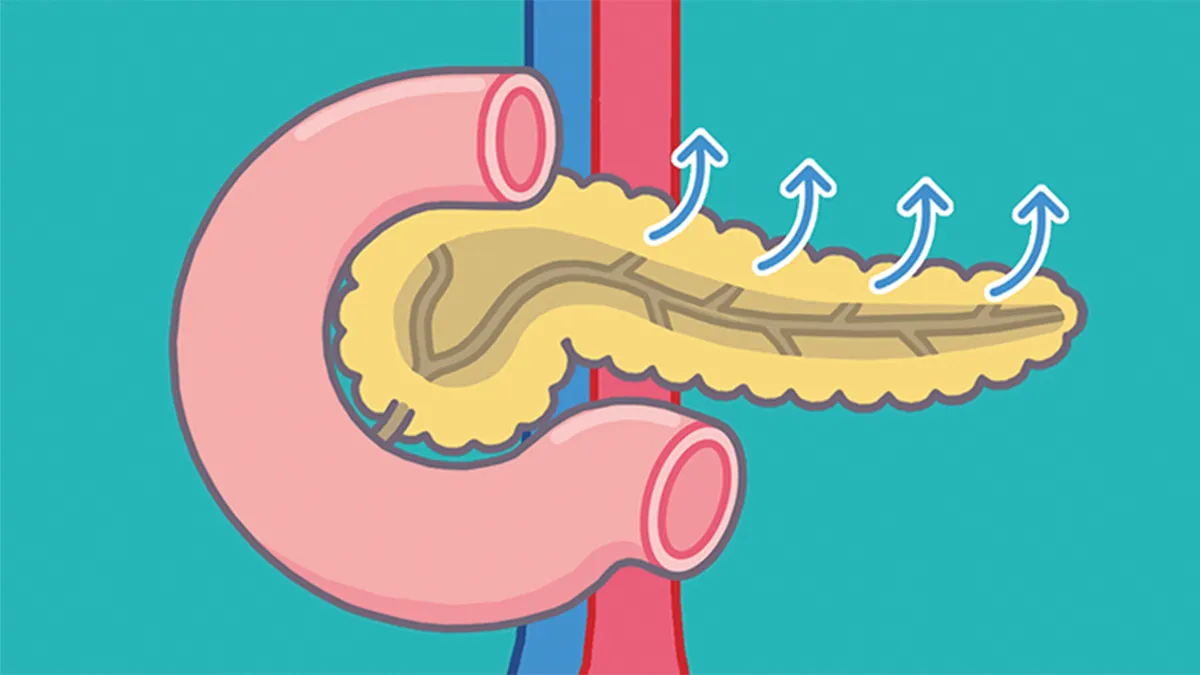
5. Blood
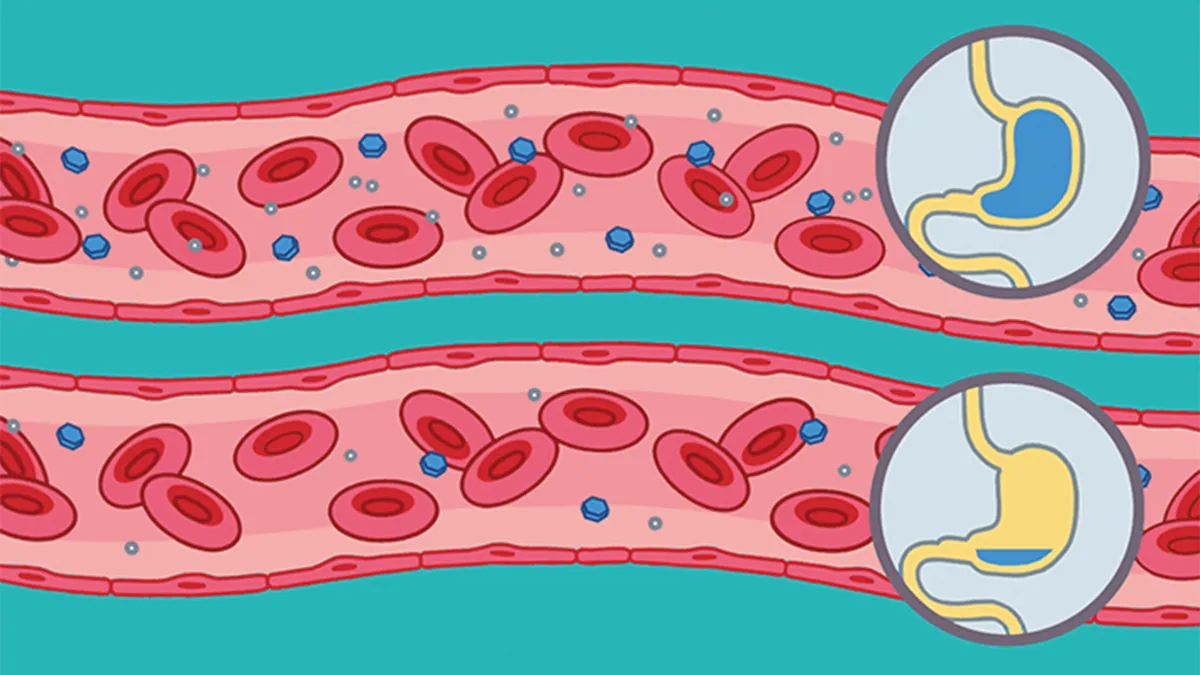
Levels of key nutrients in your blood – including glucose, amino acids and fatty acids – are at their lowest concentrations when you are hungry.
6. Brain

Hunger increases your impulsiveness and reduces your ability to make long-term decisions. This is why you shouldn’t shop on an empty stomach.
Read more:
Subscribe to BBC Focus magazine for fascinating new Q&As every month and follow @sciencefocusQA on Twitter for your daily dose of fun science facts.